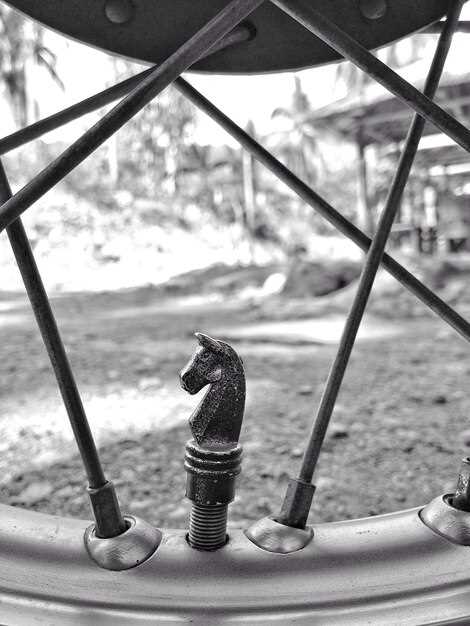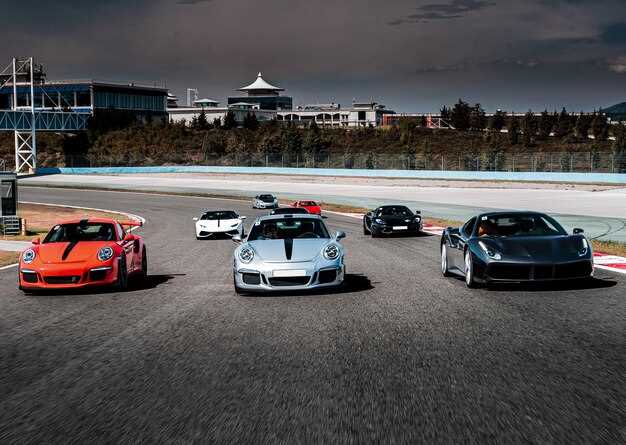How VW Motorsports Influenced Car Culture

The influence of VW Motorsports on global car culture is profound, shaping not only the automotive landscape but also the recreational activities of enthusiasts around the world. With a rich history in racing, Volkswagen has established itself as a key player in motorsport, fostering a unique culture that transcends geographical boundaries. From the early days of the Beetle in rally racing to the iconic Golf GTI dominating track events, VW has consistently demonstrated its ability to innovate and inspire.
Racing has always been an integral part of Volkswagen’s identity, and this commitment to motorsport has significantly impacted car culture. The brand’s involvement in various racing disciplines, including touring cars, rally, and endurance racing, has created a dedicated following. Enthusiasts not only admire VW’s engineering excellence but also resonate with the passion and spirit of competition it represents, cultivating a vibrant community united by a shared love for the brand and its vehicles.
Moreover, VW Motorsports serves as a catalyst for cultural exchange, introducing elements of racing culture to diverse audiences. Events like the GTI Treffen and the Wörthersee Festival exemplify how VW enthusiasts gather to celebrate their shared interests, showcasing customization, performance upgrades, and a lifestyle centered around automotive excellence. This blend of racing and culture illustrates how VW has transcended mere automotive engineering, becoming a symbol of passion, camaraderie, and a collective pursuit of speed.
The Role of VW in Shaping Modern Racing Events

Volkswagen (VW) has played a significant role in shaping modern racing events, influencing both the competitive landscape and the broader automotive culture. By pioneering various technologies and introducing innovative racing models, VW has left an indelible mark on motorsport.
VW’s impact on racing can be traced back to its early participation in motorsport, where it established a reputation for reliability and performance. The iconic VW Beetle, for example, was not just a car; it became a symbol of racing heritage as it dominated events such as the Monte Carlo Rally. This early success laid the groundwork for VW’s ongoing commitment to motorsports.
In recent years, the introduction of the VW Golf GTI has further solidified the brand’s presence in racing culture. The GTI not only excelled on the track but also resonated with a new generation of enthusiasts, blending performance with everyday usability. This dual appeal has helped foster a vibrant community that celebrates both racing and car culture.
Moreover, VW’s involvement in various racing championships, such as World Rally Championship (WRC) and Formula E, showcases its dedication to sustainability and innovation. By pushing the boundaries of technology, these endeavors demonstrate how VW shapes contemporary racing events, influencing other manufacturers to follow suit.
Through its racing programs, VW has also contributed to a culture of collaboration and grassroots involvement. Local racing events often see VW vehicles participating, connecting passionate drivers with fans and fostering a sense of community. This accessibility reinforces the idea that racing isn’t just for the elite, but can be enjoyed at all levels.
Ultimately, VW’s dedication to motorsports transcends mere competition. It encapsulates a philosophy that emphasizes innovation, community, and a commitment to excellence. As the brand continues to evolve, its impact on global car culture and modern racing events will undoubtedly endure.
How VW Enthusiasts Influence Car Customization Trends

VW enthusiasts have significantly shaped car customization trends, driven by their passion for racing and unique automotive culture. This impact can be observed through various dimensions:
- Community Engagement:
The VW community fosters a spirit of collaboration among enthusiasts. Events such as car meets, shows, and races provide platforms for sharing ideas and innovations in customization.
- Diversity in Modifications:
From performance upgrades to aesthetic enhancements, VW enthusiasts explore a wide range of modifications. This diversity inspires other car communities to adopt new styles and techniques, thereby expanding the customization culture.
- Influence of Racing:
The racing heritage of VW models, such as the Golf and Beetle, showcases the potential for high-performance custom builds. This racing background encourages enthusiasts to push boundaries, leading to groundbreaking trends in performance tuning.
- Use of Technology:
Modern customization heavily incorporates technology, with enthusiasts utilizing software for engine tuning, 3D printing for custom parts, and even software applications for enhanced driving experiences. This technological innovation often sets benchmarks within the broader car culture.
The impact of VW enthusiasts on car customization extends far beyond mere aesthetic changes; it has cultivated a unique culture that celebrates individuality and performance. The combination of racing influence and community support ensures that these trends continue to evolve and inspire future generations of car lovers.
VW’s Contribution to Sustainable Racing Practices
Volkswagen (VW) has significantly influenced global car culture through its commitment to sustainable racing practices. As the automotive industry faces increasing pressure to reduce its environmental footprint, VW has become a pioneer in integrating eco-friendly technologies within motorsports. Their innovative approach showcases the potential for performance and sustainability to coexist, ultimately shaping a new standard in racing.
One of VW’s landmark contributions is the development of alternative fuel vehicles. By promoting the use of biofuels and electric powertrains in competitive racing, VW demonstrates that high performance can be achieved without compromising environmental values. Their participation in events such as the Electric GT Championship highlights the brand’s commitment to pushing the boundaries of technology while adhering to sustainable practices.
Furthermore, VW has implemented rigorous sustainability measures during racing events, including waste reduction initiatives and sustainable materials in vehicle construction. The emphasis on recycling and minimal environmental impact not only enhances the brand’s reputation but also encourages other teams and manufacturers to adopt similar practices. This ripple effect fosters a culture of sustainability within motorsports, inspiring teams to innovate and prioritize eco-conscious strategies.
VW’s impact extends beyond the track, as their advancements have influenced consumer expectations. As car enthusiasts witness the performance capabilities of sustainable vehicles, the perception of eco-friendly racing evolves. The brand’s dedication to sustainability has become a driving force in reshaping car culture, encouraging a shift towards greener technologies across the automotive landscape. VW’s involvement in sustainable racing is more than just competition; it is a significant step towards a cleaner, more responsible automotive future.



